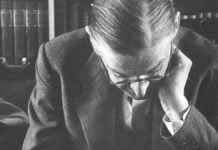William Wordsworth’s Preface to Lyrical Ballads (1800, expanded in 1802) is one of the most important texts in English literary criticism. It is a manifesto for the Romantic movement, outlining Wordsworth’s poetic philosophy and defending the innovative principles behind Lyrical Ballads, a collaborative work by Wordsworth and Samuel Taylor Coleridge. The Preface challenges neoclassical notions of poetry and redefines its purpose, language, and subjects.
The Purpose of Poetry
Wordsworth begins by explaining that the purpose of Lyrical Ballads is to redefine poetry, moving away from the artificiality and formalism of 18th-century neoclassical poetry. He argues that poetry should reflect genuine human emotions and experiences, serving as a medium for understanding and expressing universal truths.
The Subject of Poetry
Wordsworth emphasises that poetry should focus on “common life.” He chooses humble and rustic subjects, such as ordinary people and rural settings, as they are closer to the “essential passions” of human nature. He believes that the simplicity of rustic life allows for a more profound connection with the natural world and uncorrupted emotions.
Language of Poetry
One of Wordsworth’s most revolutionary ideas is his argument for using ordinary language in poetry. He opposes the ornate, artificial diction of earlier poetry, advocating instead for the “language really used by men.” Wordsworth believes that the language of the common man, when refined and artistically shaped, can elevate poetry and make it more accessible and authentic.
The Role of the Poet
Wordsworth redefines the poet as a “man speaking to men.” He describes the poet as someone with heightened sensitivity, capable of perceiving and articulating emotions more vividly than others. The poet’s role is not only to express feelings but also to awaken similar emotions in the reader, fostering a shared experience.
Emotion and Imagination
For Wordsworth, poetry originates from “emotion recollected in tranquillity.” He asserts that powerful emotions are experienced and then reflected upon in a state of calm, allowing the poet to distil these emotions into a universal form. This process emphasises the importance of imagination and memory in poetic creation.
The Connection Between Poetry and Nature
Nature occupies a central place in Wordsworth’s poetic philosophy. He believes nature is a source of inspiration, moral guidance, and emotional healing. By engaging with the natural world, the poet gains insight into human existence and the interconnectedness of life.
Criticism of Neoclassical Poetry
Wordsworth critiques the neoclassical emphasis on form, decorum, and intellectualism. He rejects the idea that poetry should adhere to strict rules or imitate classical models, advocating instead for a freer, more spontaneous approach that prioritises emotional authenticity over technical perfection.
Revolutionary Ideas
The Preface is revolutionary in its rejection of neoclassical principles. Wordsworth challenges the established norms of poetic language, form, and subject matter, paving the way for the Romantic emphasis on individual expression, emotion, and the sublime.
Focus on Common Life
Wordsworth’s decision to focus on humble and rustic subjects democratises poetry, making it more inclusive and relevant. By valuing the experiences of ordinary people, Wordsworth highlights the universality of human emotions and the profound truths found in everyday life.
Use of Ordinary Language
Wordsworth’s advocacy for ordinary language in poetry is a significant departure from the ornate diction of earlier poets. This principle makes poetry more accessible and authentic, reflecting the speech patterns of common people while retaining its artistic integrity.
Emotion and Reflection
Wordsworth’s concept of poetry as “emotion recollected in tranquillity” underscores the importance of reflection and imagination in the creative process. This idea aligns with Romantic ideals, emphasising the interplay between spontaneous emotion and thoughtful contemplation.
The Poet as a Mediator
Wordsworth’s redefinition of the poet’s role elevates the poet as a mediator between individual experiences and universal truths. By expressing heightened emotions and perceptions, the poet fosters empathy and understanding among readers, bridging the gap between the personal and the collective.
Nature and the Sublime
Wordsworth’s emphasis on nature reflects the Romantic fascination with the sublime and the transformative power of the natural world. Nature serves as a source of inspiration, wisdom, and emotional solace, highlighting its spiritual and moral significance.
Critique of Formalism
By rejecting neoclassical formalism, Wordsworth liberates poetry from rigid conventions. His call for spontaneity and authenticity resonates with modern readers, affirming the value of creativity and emotional truth over technical perfection.
Philosophical Depth
The Preface combines literary theory with philosophical reflection, exploring the relationship between art, emotion, and human experience. Wordsworth’s ideas about the connection between poetry and life remain relevant, offering insights into the transformative power of literature.
Legacy and Influence
The Preface to Lyrical Ballads has had a profound impact on the development of modern poetry and criticism. It established Romanticism as a dominant literary movement, influencing poets like Coleridge, Shelley, and Keats. Its emphasis on emotion, imagination, and the ordinary continues to inspire poets and readers today.
Preface to Lyrical Ballads is a foundational text in Romantic literary theory, offering a bold redefinition of poetry’s purpose, subjects, and language. By emphasising emotion, imagination, and a connection with nature, Wordsworth challenges conventional norms and advocates for a more authentic and inclusive approach to poetry. The Preface remains a timeless work, celebrating the transformative power of art and its ability to capture the universal truths of human existence.






























